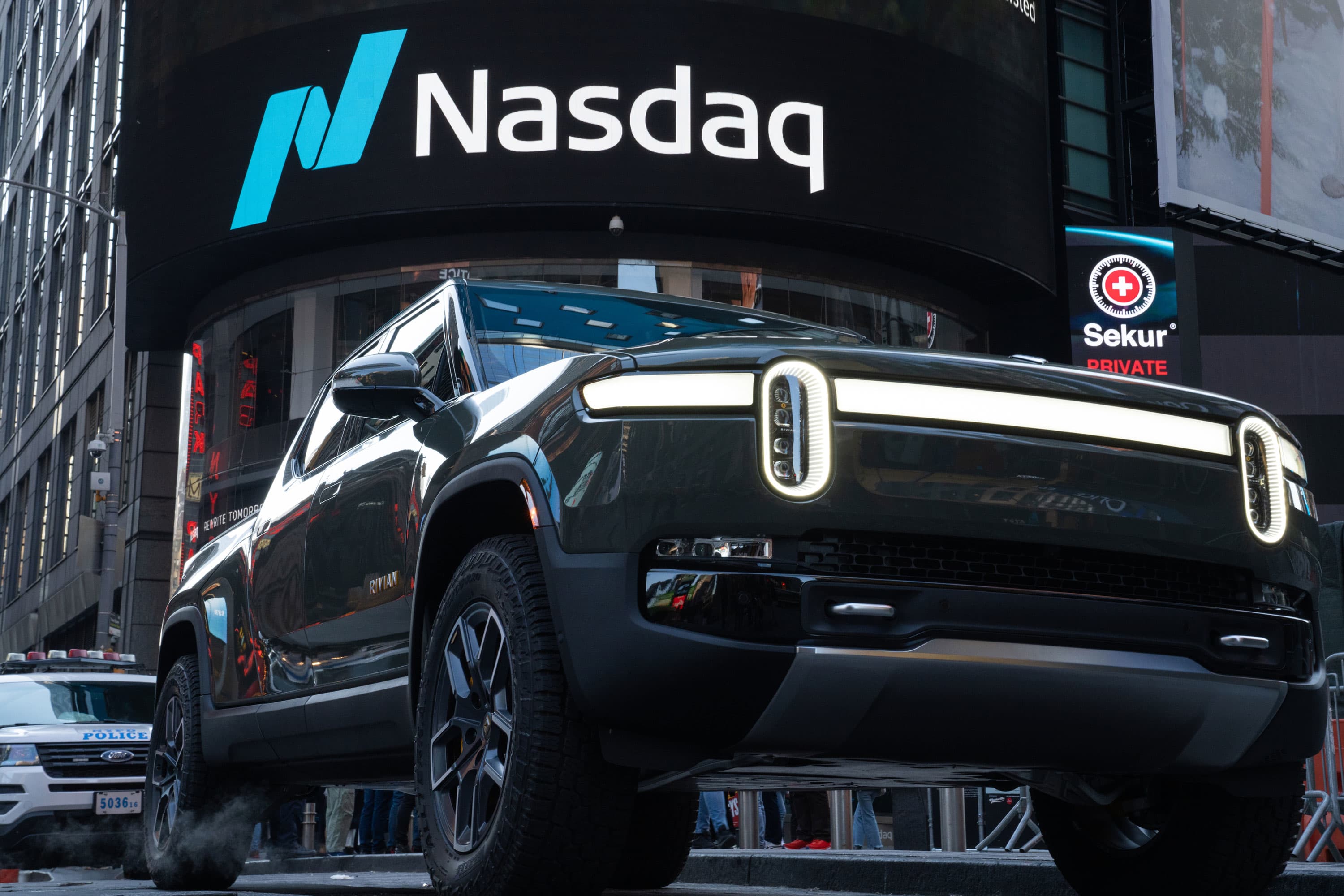Jim Cramer attempts to make sense of EV start-up Rivian’s $86 billion valuation

CNBC’s Jim Cramer on Wednesday broke down the reasons Rivian Automotive was able to soar in its market debut, despite the fact many other growth-oriented stocks were sold because of inflation fears.
After rising 29% to close at $100.73 per share, Rivian’s market cap of $85.9 billion is bigger than Ford‘s $77.4 billion, and it’s just shy of General Motor‘s $86.05 billion. However, the “Mad Money” host contended that comparing Rivian to legacy Detroit automakers may be misguided all together.
“Electric vehicle makers are in a league of their own compared to old-school auto companies that still rely largely on the dreaded internal combustion engines. Doesn’t mean Rivian deserves to be worth this much, but it does mean you can’t dismiss it out of hand,” Cramer said.
“Rivian’s stock price is set by buyers who believe that electric vehicles are taking over the world and there are enough true believers in the money management business post-Tesla‘s phenomenal success to send this stock into the stratosphere, and it may not be done,” he added.
While Rivian has next to no revenue and has only delivered 156 of its electric trucks so far, Cramer said investors in the company are focused on Rivian’s own backers — specifically, Amazon and Ford.
Cramer said it’s not clear how long Ford will hold onto its stake in Rivian, but Amazon appears to be in it for the long-haul because the e-commerce giant has placed an order for 100,000 of Rivian’s electric vans to build out its delivery fleet.
“It’s not often you see a company with a sold out production line before it even enters mass production, but that is Rivian’s pedigree.”
Rivian’s strong debut session coincided with a tough day for many growth-focused stocks as investors digested the latest hot inflation data. The Vanguard Growth Index Fund ETF Shares, for example, lost 1.57% Wednesday, compared with a 0.8% decline for the broad S&P 500.
“You might be wondering, why the heck wasn’t Rivian slaughtered, too?” Cramer asked. “It’s simple: Rivian’s not rallying in spite of the growth stock sell-off; the growth stocks sold off in part because of Rivian, as [large] investors sold off similar assets in order to get as much stock as they could or participate in the deal.”
Sign up here for the new CNBC Investing Club newsletter to follow Jim Cramer‘s every move in the market, delivered directly in your inbox.




